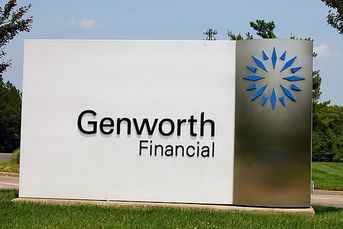Clients take volatility in stride and remain calm, say advisers
Despite the spreading turmoil in North Africa and the Middle East, and an ominous rise in the price of oil, financial advisers say their clients are not pressing the panic button
Despite the spreading turmoil in North Africa and the Middle East, and an ominous rise in the price of oil, financial advisers say their clients are not pressing the panic button.
Rob Francais, chief executive of Aspiriant LLC, is in fact surprised at the relative calm among his clients.
“There’s a casual concern, but the phones aren’t ringing off the hook. After the downturn we experienced, I think people are a lot more tolerant of volatility,” said Mr. Francais, whose firm manages about $7 billion in assets. Like most other advisers, he said he’s not making changes in portfolios based on short-term geopolitical considerations.
In fact, Mr. Francais sees the events in the Middle East as being far less significant to investors than the recent involvement of the U.S. government in the financial markets.
“There is turmoil occurring almost all the time somewhere or another in the world. The events that we saw in the fall of 2008 and spring of 2009 were much more of a game changer for the markets,” he said.
Still, Mr. Francais is taking the time to help clients understand the risks involved in maintaining large equity allocations and how spikes in commodities prices could affect them. He said he maintains a small commodities exposure like an airbag — “to soften the potential blow.”
Adviser Mark Sear also is finding that clients are remaining calm.
“I was getting the calls earlier in the month when clients were asking why I wasn’t buying more stocks and investing in more risk,” said Mr. Sear, chief executive of Luminous Capital LLC, which manages just under $3.4 billion in assets. Skeptical of the run-up in global stock prices over the last year, he has been reducing risks in client portfolios for some time.
Kathy Boyle has been equally cautious with many of her clients, using investing strategies — employing ETFs in large measure — that have reduced the upside of the past year but have protected against the downside. She also has plenty of clients more fully invested in the nascent bull stock market who are now having second thoughts.
“They’re concerned. Some of my wealthier clients are thinking of putting their money in Swiss francs and gold,” said Ms. Boyle, who runs Chapin Hill Advisors Inc.
Investors certainly have reason to worry. If unrest in the Middle East spreads to strategically important countries such as Saudi Arabia, oil prices may spike further, which would wreak havoc with the global economy. From U.S. investors’ point of view, that could push the currently modest dip in the S&P 500 into a 20% or 25% dive.
“Every major correction needs a catalyst, and this could be a catalyst,” said Ethan Anderson, a senior portfolio manager at Rehmann Financial.
Like Mr. Anderson, however, many advisers are counseling their clients to stick to their investment strategies and not panic. They believe that short-term political risks in the Middle East are unlikely to derail the global economic recovery or the rising trend in global stock prices.
“The good thing is, these upheavals seem to have nothing to do with religion,” Mr. Anderson said. “People in the Middle East want the same freedoms and opportunities we have, and to that extent, this could be a good thing in the long term.”
Added Mark Matson, head of Matson Money Inc.: “The protesters want the freedoms we take for granted. Maybe those countries will end up with more-progressive leaders and we’ll see more oil production. The knee-jerk instinct of investors to sell can be so destructive.”
Mr. Matson is also devoting more time to communicating with his clients and assessing their emotional state.
“It’s easy to say, “think long-term,’ but when the market drops 20% and it looks like Armageddon, it’s difficult to imagine the emotional state investors will be in,” he said. “We tell clients that we’re their coach, and part of our job is to keep them disciplined in this type of environment.”
Oil, of course, is the big concern of both advisers and investors, who worry about the effects of significantly higher prices on world economies.
“I’m skeptical of all this talk of democracy coming to the Middle East; there’s no way of knowing how this plays out,” said Steven Evanson, chief executive of Evanson Asset Management. “This could turn out to be very difficult for U.S. strategic interests and we could be headed for dramatically higher oil prices permanently.”
Nevertheless, Mr. Evanson also is advising investors not to panic and gut their portfolios. He largely makes use of passively managed index funds and doesn’t change asset allocations unless his clients’ financial circumstances change. For that reason, he isn’t altering allocations based on what’s happening in the Middle East.
“We can’t control the world, but we can control ourselves. Reacting to political events just doesn’t make sense,” Mr. Evanson said.
E-mail Andrew Osterland at [email protected].
Learn more about reprints and licensing for this article.




